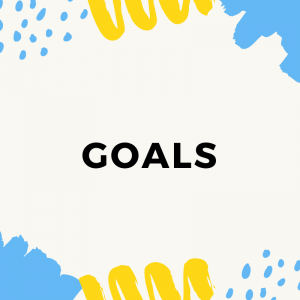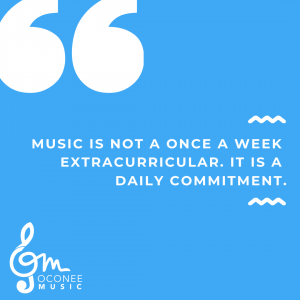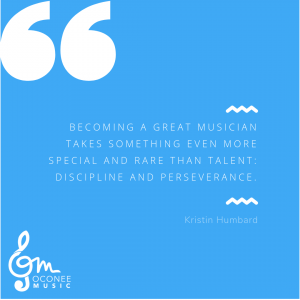How do you know what to expect from music lesson if you never had music lessons yourself? Or maybe you had a bad experience with music lessons and want to make sure your kids do not have that same experience. I’m going to give you an overview of the lesson process, home practice expectation, general policies, and tell you what your teacher really wants you to know!
Lesson Process: How do Lessons work? What do I need to know?
Your instructor is your child’s guide to their own self-discovery. Once a week you will meet with your teacher for a private lesson, in which the teacher will give you an assignment consisting of technical exercises and repertoire (songs!). The next week your teacher gives you feedback on the progress and a new assignment. There will be performance opportunities to provide motivation: recitals, festivals and group classes.
Before you get your children started in music lessons, one of the first things to consider is the long-term commitment. Learning an instrument takes years. I think a lot of people get into music lessons cause they want to play the song that they heard on youtube, in a movie, in church, on the radio, etc. That’s great! It’s a good goal but it’s going to take your child several years to get there. I personally took music lessons from age 5 to 23 (when I finished college). Obviously not everyone will become a music major, but that brings us to another point when considering lessons: know your goals!

What are your goals?
People look for music lessons for several reasons, but I’ve found these to be the top 3 reasons over my career as a teacher.
- I want my kid to be exposed to music
- I want my kid to be able to play proficiently songs that they love (pop, musicals, etc)
- I want my kid to be a competent classical musician and potentially major/minor in music OR get a college scholarship in music.
If you’re on the number 1 train, just go find a group class. Seriously, if you’re just looking for a short-term exposure, you will waste so much money going through private lessons. Numbers 2 and 3 will follow the same structure as far as the length of time in lessons and the years it will take but the teacher will develop a different plan for the technique and repertoire at some point. ALWAYS COMMUNICATE YOUR GOALS TO YOUR INSTRUCTOR!
Ok, I understand the actual lessons, now what about practicing? Do we really need to do it?
I’m here to drop a truth bomb. If the student is never practicing at home you’re just wasting time and money. That sounds harsh to say but it’s very true. The only way to improve is to do something over and over – there’s no quick fix.
If you just want your kid to be exposed to music have her take a group class somewhere! If you want your child to really learn an instrument then make sure that they are practicing at home! That’s the only way that they’re going to actually develop and make progress. I’m not kidding – there is no short fix for this. I have never, ever, ever met someone who learned to play an instrument well without practice.
Please do these things, parents.
- encourage the student to practice
- get them set up on a practice routine
- make sure that they’re practicing their assignment
- communicate with the teacher about progress
People try to argue sometimes for natural talent, as if some people just don’t really need to practice. True, some people can get away with less practice than others but everyone needs practice! One of my most talented friends in college as a music major could play just about anything she touched: piano, accordion, violin trumpet, saxophone, etc. She was good at many things but hadn’t become excellent at any of them. When this girl decided she wanted to commit to the violin she practiced all the time and become VERY good at that one instrument. Even though she had natural talent, she didn’t see results until she got serious about it!
I never enjoyed practice as a kid — I’d be lying if I said that I did — but I did do it, mostly because my mom made me. This took me to a certain point of proficiency. When I realized what I was playing was starting to sound like real music, I became self-motivated and started practicing on my own. The beginning stages are hard. Children do not start off reading at a 12th grade level instead they start with Dr. Seuss and those short 3-letter rhyming books. They may even struggle to find enjoyment in reading along the way. Think long term with music lessons. Remember that music is not a once a week extracurricular, it is a daily commitment.

Your child will probably need some help in the beginning, depending on how young they are. It’s just like learning how to read, if you think about it. They’re going to school for 6+ hours every day, five days a week, to learn their other subjects. Just the motor skill of learning an instrument is a full-brain, complicated thing to learn, then add to that reading music notation and it’s even more of a challenge! The student is only with the teacher one day a week for 30-60 minutes. The parents and students work together at home DAILY to make true progress. It’s a big commitment to be a music parent. This is why I really appreciate all of the music parents at my studio because I know that they have really worked and sacrificed to get their kids in music lessons and to give them this gift of music.
Do I need an instrument before beginning lessons?
Yes, you absolutely need an instrument. Surprisingly I get asked this question a lot. If you read the practice section above, then by now you understand the importance of regular at-home practice. It is crucial for progress. Being a music parent takes a lot of commitment and can be hard at times but knowing that the end goal is a lifetime of enjoyment for your child should help ease the burden!
So how do lessons really work? What does my teacher want me know?
In a nutshell, you need to practice every day for years and years to achieve mastery. Malcolm Gladwell suggests in his book Outliers that there is a 10,000-Hour Rule. He considers the 10,000-Hour Rule to be the key to success in any field. You must practice a specific task for 20 hours of work a week for 10 years. It is simple but NOT easy.
Perhaps I should have titled this article with something about practicing. The instant you mention practice, people’s eyes glaze over. People seem to think musical proficiency is something fun and glamorous that should come easily and always be fun. The reality is that, yes, It is super fun but to be a GREAT musician takes something even more special and rare than talent: discipline and perseverance!!!



